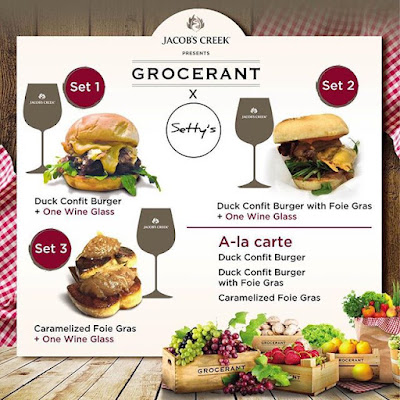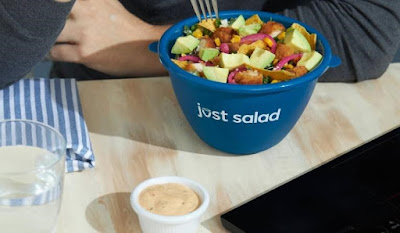Starbucks
once stood as the global beacon of “doing well by doing good.” In 2020, the
brand boldly embraced the “Me to We” movement—shifting focus from
individual convenience to collective sustainability according to Steven Johnson
Grocerant Guru® at Tacoma, WA based Foodservice Solutions®. With strawless
lids, recyclable materials, and an ambitious 2030 goal to cut waste sent to
landfills by 50%, Starbucks positioned
itself as a restaurant-sector sustainability leader.
Back
then, it worked. Consumers applauded the move. Environmental advocates—from the
Ocean Conservancy to local community leaders—praised Starbucks for creating
scalable change in single-use plastics. The new lids, made from recyclable
polypropylene, marked a genuine step toward a circular economy.
What They Got Right
Since
2020, Starbucks has continued to make
progress—at least on paper. It expanded the strawless lid program globally,
rolled out reusable cup trials in several markets, and pledged to make every
store “resource positive” by 2030. Pilot programs in Japan, the U.K., and select
U.S. cities allowed customers to borrow and return reusable cups—an innovative
test of shared responsibility between company and customer.
The
company has also invested in regenerative agriculture, helping coffee farmers
adapt to climate change through its “Farmer Support Centers” and new low-carbon
coffee initiatives. These moves align directly with the “Me to We”
ethos—linking corporate purpose to environmental well-being.
Capitulating
Share of Stomach
Where They’ve Gone Wrong
But
good intentions don’t always translate into good execution. The brand’s
progress has been uneven, and its sustainability message has grown fuzzy.
After
COVID-19, Starbucks scaled back or
paused some of its most promising reusable cup programs, citing “operational
challenges.” Waste audits show single-use packaging still dominates its output.
Meanwhile, the company’s shift to mobile ordering and drive-thru heavy
formats—now responsible for over 70% of U.S. transactions—has increased
packaging waste dramatically.
Even
more damaging, Starbucks’ sustainability narrative has been overshadowed by
internal controversies over employee treatment, unionization efforts, and
cost-cutting measures. Consumers can’t embrace a “Me to We” mission if the “we”
inside the company feels ignored.
In
short, Starbucks led the sustainability conversation five years ago—but it’s no
longer leading it today. Competitors like McDonald’s, Pret a Manger, and Panera
have leapfrogged with stronger packaging solutions, carbon tracking
transparency, and store-level waste reporting.
The Road Back to “We”
Sustainability
and social responsibility aren’t side projects—they’re part of brand DNA.
Starbucks has the global reach and cultural capital to make sustainable
consumerism more than a buzzword again. But it must realign execution with
its original vision.
Three Grocerant Guru® Insights for Starbucks’ Path Forward
1.
Reconnect People and Purpose.
Starbucks’ “Me to We” promise must extend beyond packaging. Consumers now view
sustainability as social as much as environmental. Empowering baristas,
restoring community trust, and aligning employee well-being with brand mission
will turn sustainability back into shared culture—not corporate rhetoric.
2.
Make Sustainability Measurable and Visible.
Today’s customers expect data, not declarations. Starbucks should post
waste-reduction, recycling, and energy efficiency metrics in-store and
online—in real time. Sustainability must be as transparent as a calorie
count if it’s to rebuild credibility.
3.
Reimagine the Store Experience for the Low-Waste Era.
Digital convenience must evolve into digital responsibility. The brand’s future
lies in low-waste convenience: mobile ordering with reusable cup
integration, refill incentives tied to loyalty programs, and store designs that
minimize waste flow. This is the new face of the grocerant niche—fresh, fast,
and forward-thinking.
Starbucks
taught the world how to personalize a cup of coffee. Now it must teach the
world how to personalize sustainability. The future belongs to brands that make
“Me to We” more than a slogan—it must become an operational standard and a
cultural movement.
Success Leaves Clues—Are You Ready to Find Yours?
One
key insight that continues to drive success is this: "The consumer is
dynamic, not static." This principle is the foundation of our work at Foodservice
Solutions®, where Steven Johnson, the Grocerant Guru®, has been
helping brands stay relevant in an ever-evolving market.
Want
to strengthen your brand’s connection with today’s consumers? Let’s talk.
Call 253-759-7869 for more information.
Stay Ahead of the Competition with Fresh Ideas
Is
your food marketing keeping up with tomorrow’s trends—or stuck in yesterday’s
playbook? If you're ready for fresh ideations that set your brand apart, we’re
here to help.
At
Foodservice Solutions®, we specialize in consumer-driven retail food
strategies that enhance convenience, differentiation, and
individualization—key factors in driving growth.
👉
Email us at Steve@FoodserviceSolutions.us
👉 Connect with us on social media:
Facebook, LinkedIn,
Twitter

























